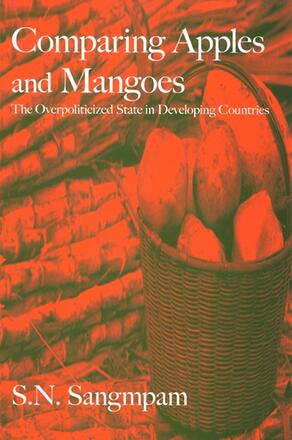
Comparing Apples and Mangoes
The Overpoliticized State in Developing Countries
Alternative formats available from:
Uncovers important similarities in the political features of developing countries in Africa, Asia,and Latin America.
Description
Two competing approaches currently dominate the debate about the state and institutions in developing countries. The first projects a picture of transnational, vertical uniformity descending from the West to developing countries and views liberal democracy as "the only game in town." In this view, the state and institutions resemble or ought to resemble those in the West. The second, by contrast, explains political outcomes by local idiosyncrasies and regional variations in institutions. In his original approach to third world politics, S. N. Sangmpam challenges both views by uncovering important similarities in the political features of developing countries. He shows that they share political behaviors and features unaccounted for in either local/idiosyncratic or liberal democratic theories. These behaviors converge toward a common property—overpoliticization—that defies political compromise, leading to an overpoliticized state. Sangmpam provides a wealth of empirical, historical, and quantitative evidence from Latin America, Asia, Africa, and the West and demonstrates the overpoliticized state constitutes the cornerstone of an integrated theory of politics in developing countries.
S. N. Sangmpam is Associate Professor of Political Science at Syracuse University and author of Pseudocapitalism and the Overpoliticized State: Reconciling Politics and Anthropology in Zaire.